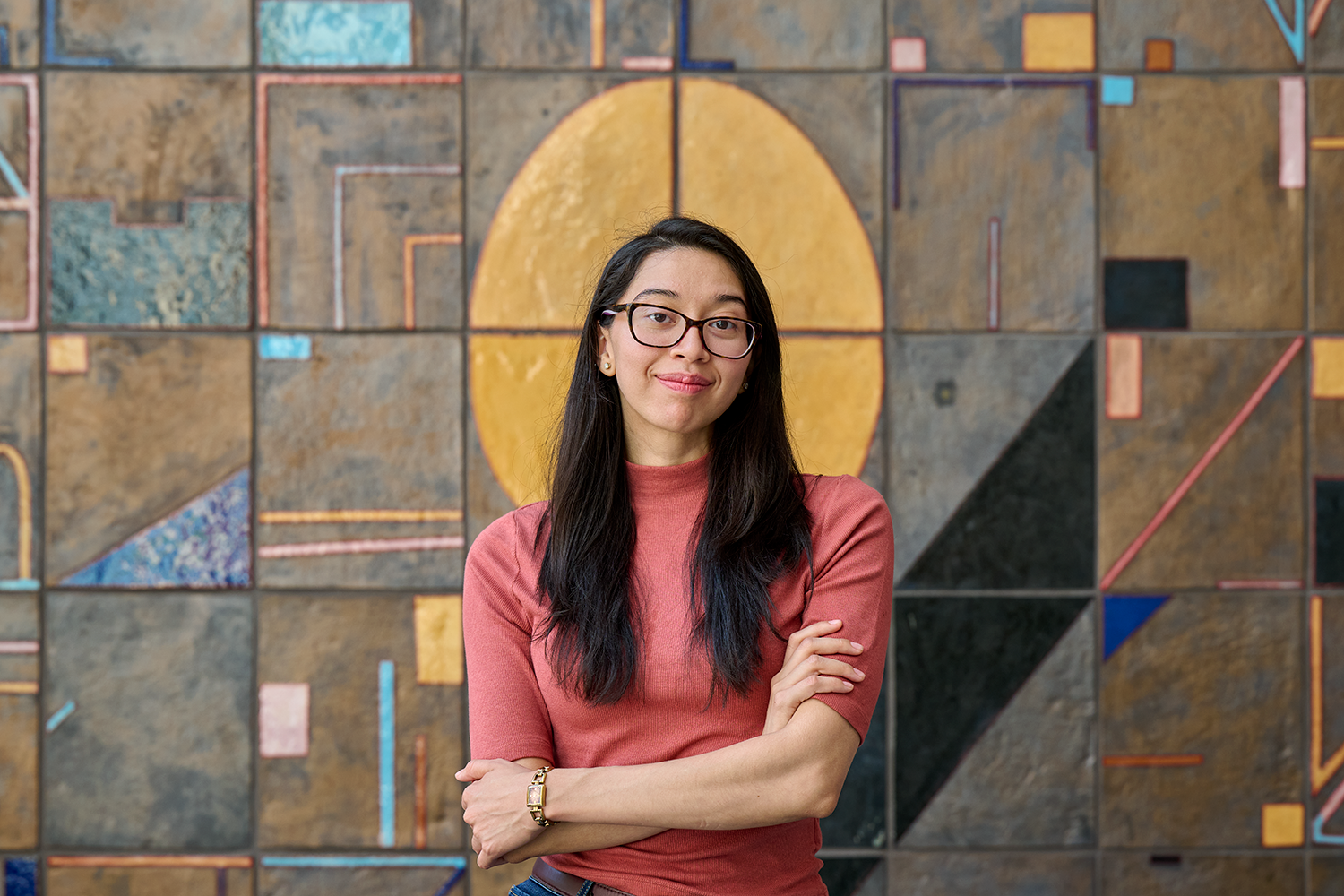Brenda Milla
Milla's postdoc research seeks answers to why our sleeping brains sometimes forget to remind us to breathe

Milla's work traces how disordered breathing and seizures can contribute to sudden death.
Brenda Milla '19 (CLAS), '24 Ph.D. reached her fifth year of undergrad before she considered doing research — UConn, she says, taught her to never turn down an opportunity. We caught up with the Stamford native at a coffee shop in Manchester this summer, where she told us about breathing, brain cells, and why it's her dream to attend a mixed martial arts bout.
Your Ph.D. advisor, Dan Mulkey, mentioned that you are a boxer.
I'm interested in the sport, and mixed martial arts generally. As an undergrad, I went to a boxing gym and learned Muay Thai. It's similar to kickboxing, but you can strike with your knees and elbows. In the beginning, it was to gain more confidence in myself. It brings something out of you.
Why did you transfer from UConn Stamford to Storrs?
To finish the biology major. As a first-generation college student, the transition to a large campus was more challenging than I anticipated; I didn't do so well. My initial year was a whirlwind of adjustment, especially after caring for an uncle and grandmother who eventually lost their battles with cancer. I took additional classes that weren't required, and I wasn't familiar with add-drop. I knew this was not reflective of my capabilities. I could have graduated fourth year, but I decided to stay a fifth year. My major was MCB, and I'd pretty much taken all the MCB courses, so first semester fifth year I took PNB cardiorespiratory physiology. That's when I met Dan [Mulkey] — it changed my life.
You did a lot of volunteering in both Storrs and Stamford.
I grew up speaking Spanish at home. As an undergrad, I began interpreting at a free clinic in Stamford. In Storrs I volunteered with Windham Hospital, the Collegiate Health Service Corps, and Covenant Soup Kitchen. I also gave presentations to migrant farm workers at their lunch space. I'm not much of a public speaker — it was quite scary!
For someone who says she's not much of a public speaker, you gave a pretty good commencement speech.
I got the selection email the day before my trip to give a talk at Seattle Children's and Microsoft SIDS Research Summit in Washington. It was an overwhelming time. I was in the midst of finishing a complicated analysis, writing my dissertation, applying for a postdoctoral fellowship, and preparing for my first-ever talk at a conference. I felt a lot of pressure, and it took me a day or two to respond yes. I'm quite timid, but this was an incredible once-in-a-lifetime opportunity. I decided to challenge myself.
You're happy with how it went?
I reflected on this surreal moment in my life where not only am I the first person to graduate from college in my family, but now I will be earning a Ph.D. — breaking generational cycles. Overall, I was happy with it, especially because my mother was in the audience, and I mentioned her in my speech. She replays the video over and over, and it makes her so happy!
You mention your mom a lot. Has she had a big influence on your career?
My parents immigrated here from Mexico. My mom was a housekeeper. Even for her to attend high school, she had to take multiple buses over an hour each way. Her experience really motivates me. She always encouraged me to achieve my dreams. Even when I was close to just getting a job to help my family financially, she said, "No, follow your interests." It feels selfish in a way, wanting to pursue this academic route that has very delayed gratification. When I was at UConn Stamford, on Fridays I'd go with her and help her clean. Big houses, tall ceilings, nice furniture. Some day I'm going to buy Mom a house. For now, I'll keep focusing on my career path.
We've talked about how your research could potentially discover lifesaving truths, even treatments, for people with severe epilepsy. How does that intersect with life-threatening breathing problems, such as sudden death in sleep — for infants and adults?
My current project is understanding the neural basis of breathing dysfunction in Dravet syndrome, a rare form of epilepsy that begins in infancy, and understanding how that may contribute to premature mortality. I'm looking into an unexplored population of neurons called glycinergic neurons. They've been completely ignored in the field. I'm really interested in connecting my current work with epilepsy and my postdoc studies on sleep disordered breathing.
Your postdoc is at Harvard, right?
I'll work at Beth Israel Deaconess Medical Center in Boston. It's a Harvard teaching hospital. I wasn't actively looking for postdocs. But then I met [Harvard professor] Thomas Scammell. He's a leading expert in orexin neurons and in narcolepsy. He stopped by my poster at the Society for Neuroscience conference. We talked about my research, about his research, and it just sort of organically flowed. The more I started to learn about Tom's lab, the more it just seemed like a no-brainer. I couldn't say no.
Do you think about your own breathing a lot?
When I get stressed, I'm too vigilant of my own breathing. I may sigh or hold my breath for too long, which will cause CO2 buildup in the blood and cause me to take a breath again. Thankfully, I know my central chemoreceptors are working!
By Kim Krieger
Photo by Peter Morenus

Leave a Reply